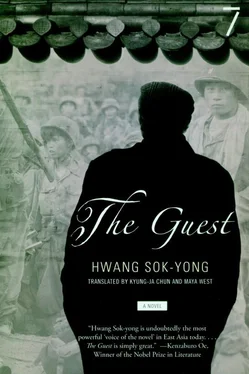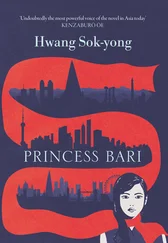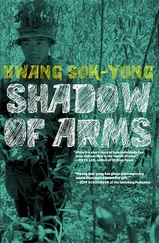Eventually a group of independent farmers chipped in and hired Ichiro as a kind of village servant. In the summer, he’d do things like fix the broken stepping stones in front of the village, manage the village mill, and take care of the community compost heap. During the busy farming seasons he’d go from house to house and help out with the farmwork. His wages were paid to him in rice. Sometimes he’d even draw water from the well for the families that were really short-handed. Anyway, do you remember all the dugouts that used to be at the mouth of the orchard, next to the mill and near the funeral house? You know, those mud cellars where we used to keep the saplings. Ichiro made one of them deeper and covered it up with straw mats. That was where he lived for a while, at least, at first.
No one in the village used the polite form of speech to Ichiro, but he would use the high honorific form to all the married men, regardless of whether they were older or younger than himself — he only spoke the low form of speech to young children. The children, in turn, spoke it right back to him, as if he was one of them. To think that man laid his hands on Father — if that’s not an example of the world turning completely upside down, I don’t know what is.
Within six months of the liberation, Ichiro suddenly became “Comrade Pak Illang.” His attitude had already started changing in the fall of that year, but no one dared quarrel with him about his new manner of speaking. Putting their personal feelings aside, even the adults in the village started to use the polite form of speech when addressing him. A few years before liberation Ichiro had moved out of his dugout and into the village sarang , where he spent his time weaving straw mats and mesh nets. Then one day, he simply disappeared. He showed up a few months later, when winter was nearly over.
According to Mother, on the day he took our father, Ichiro just walked right into our house, bold as you please, wearing his people’s uniform and an armband that said “Rural Village Committee Chairman.” He was accompanied by some boys from the Democratic Youth League. He called out for Father. When Father came out and asked what was going on, Ichiro whipped out a piece of paper and waved it in his face. “The Land Reform Order has come down from the provisional People’s Committee,” he said, “and I am here to execute it.” He asked Father if he was willing to donate his land for fair distribution or if he’d rather subject himself to blind confiscation. Assuming that the bastard was illiterate, Father said his vision was too weak to read the document and asked Ichiro to read it aloud. Ichiro held it up and began to read it slowly. Father yelled at him to stop, snatched the paper away from him, and tore it to pieces. In that same instant, lights burst before his eyes — you see, Ichiro punched him right in the face. Father collapsed to the ground, cradling his face in both hands. Mother saw it all with her own two eyes. She leapt on Ichiro and grabbed him by the throat.
“You ungrateful beast! How dare you lay your hands on him!”
Slowly, Ichiro twisted Mother’s wrist. Then, all at once, he thrust her away. While she was down on the ground, he went into the main room without taking his shoes off and ransacked the chest of drawers with his gang, searching for the title to our land. He found it. Then, Mother said, he concluded with his new catchphrase.
Comrades, arrest this enemy of the People.

I, too, know a little bit about Brother Illang.
As I told you before, I went to night classes for a while before I left your orchard to go and work at the mines in Ŭnnyul. In those days, I used to go to the village sarang to practice writing or to read leaflets all by myself. That was back when Brother Illang was still Ichiro. In the winter, the young ones in the village like your brother Yohan and some of the older men were constantly in and out of the sarang . They would always stay late into the night, so we never really had a chance to share the thoughts that lay deep within our hearts. Because he’d spent his entire life serving others, Ichiro hardly ever opened his mouth. You remember, don’t you? And the man always shaved his head. He might have let it go for a month or two, but just as it started to get a little bushy he’d go into town on a market day and have it shaved clean with a pair of hair clippers.
It was after the autumn harvest that I finally became friends with Brother Ichiro. I, too, decided to start spending my nights in the village sarang . You see, no matter how bland or boring a guy seems, if you start sleeping together in the same room every night you’re bound to develop a sense of kinship. There were plenty of branches to be pruned off the trees in the orchard, so we had more than enough firewood. We stuffed the furnace full of them, and by the time we entered the room the floor was always boiling hot. We cooked peas and steamed sweet potatoes together. Every now and then you boys would bring us some tongch’imi, and then we’d take a bite of sweet potato and wash it down with tongch’imi juice that still had bits of ice floating in it. We’d pick out the crunchy slices of radish that floated in the tongch’imi bowl and chew them up. I saw that Brother Ichiro was in the habit of sleeping without a blanket — without any covering of any kind, actually. The floor might have been warm enough, but the room could get quite chilly, especially at dawn. I asked him, Brother, why don’t you cover yourself with a blanket when you sleep?
I’ve never had anything to cover myself with.
I was so dumbfounded that I asked him again, You mean you’ve never slept with a blanket, not even when you were a child?
That’s right. There aren’t any blankets up in the mountains. The first time I ever saw one was after I came down into the village.
That’s when I realized he had lived in the mountains, in the slash-and-burn fields, ever since he was a child. I tried asking him a different question.
Brother, doesn’t it make you angry when little children talk to you in low form?
They are all the precious offspring of my masters — why would I be angry?
Brother, I’m five years younger than you — please, don’t use honorifics when you speak to me — plain form is enough.
Brother Ichiro simply smiled in response and didn’t say a word. Living together in the village sarang for four seasons, we became as close as if we were real brothers. I found out that Ichiro was born in Sanp’an. He’d lived with his parents and his grandmother in a nearby hill village; they all worked at an eatery for laborers. The name “Ichiro” was given to him by a Japanese foreman. His father was working as a logger when he was crushed to death under a log, and then his mother left to make money. She never came back. Eventually, he and his grandmother moved to the slash-and-burn fields, scraping together a living by working other people’s land. All they could grow was millet and potatoes, and since they were working as a kind of tenant family they had to give up half of what little they harvested to their landlord. When he turned eighteen, Ichiro found a woman, got married, and even managed to stake out a little slash-and-burn field for himself by burning off the slope of a hill. Then, as luck would have it, the government began to crack down on the slash-and-burn fields, and Ichiro was sent to prison. By the time he got back to his home after serving his ten-month term in Haeju, the whole place had been burnt to cinders and, thanks to a wide-scale evacuation, everyone had scattered to heaven knows where. His grandmother had died, and his young wife had disappeared. After that, he just drifted from one construction site to another until he ended up along the Chaeryŏng River. Eventually, just like my family, he floated on over to Ch’ansaemgol in search of rice paddies to work.
Читать дальше













